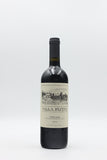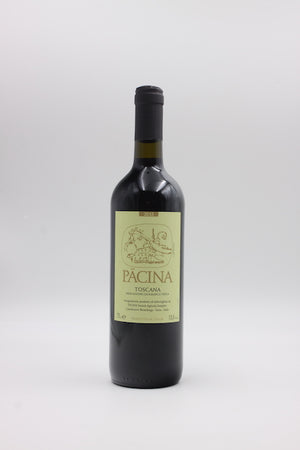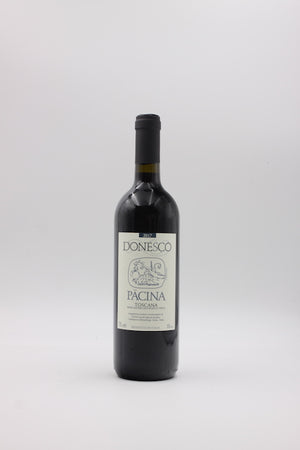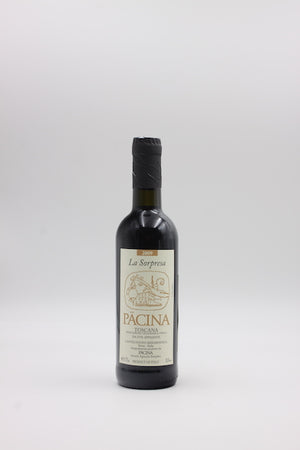

Pacina, Villa Pacina 2018
- €32,80
Villa Pacina
Cement has long been used in Italy for aging wines, particularly in Tuscany, where dozens of wineries still ferment their wines in cement vats. This is likely due to Sangiovese's apparent affinity for this material, which is why Giovanna Tiezzi and Stefano Borsa of Pacina age their Villa Pacina entirely in cement.
Cement and clay vessels (such as amphorae) offer several notable advantages. Aside from being flavor-neutral, their most significant benefit is the ability to maintain a constant temperature during fermentation. The thick, stable walls and high thermal resistance of cement ensure that the heat generated during fermentation dissipates less rapidly than in stainless steel tanks or wooden barrels. Additionally, a small amount of oxygen permeates through the cement walls, fostering yeast growth at the start of fermentation and stabilizing the wine during aging.
Stefano and Giovanna produce Villa Pacina only in exceptional years, when the Sangiovese grapes can be harvested fully ripe with perfectly developed tannins. The vines are between 20 and 50 years old, with an average yield of 40 hl/ha.
After pressing, the wine remains in cement tanks for about two years before being bottled without filtration or sulfur additions. It then undergoes further aging in the bottle for six months.
The result is a profound, open, and balanced wine with floral and dark fruit aromas, a smooth texture, and a powerful, focused finish.
Technical Sheet
- Grape Variety: Sangiovese
- Soil: Tufo di Siena
- Harvest: Hand-picked
- Fermentation: Spontaneous | wild yeasts, 5-week maceration in cement vats
- Aging: 24 months in cement
- Filtration: None
- SO₂: < 20 mg/l
- Alcohol Content: 14.5% vol
- Closure: Natural cork
- Serving Temperature: 16-18°C
- Ideal Drinking Window: Now – 2032
- Volume and Price per Liter: 0.75 l (€32.27/l)
Philosophy: All winemakers listed by Vinonudo cultivate their vineyards using compost, organic fertilizers, and natural preparations, avoiding herbicides, pesticides, and synthetic fertilizers.
- Auf Lager! Gewöhnlich versandfertig in 24 Stunden.
Newsletter
Who knows more, tastes more. Once a week there is news about our wines, winegrowers and events.
© 2025 vinonudo | Shopify Theme by Mile High Themes | Powered by Shopify







